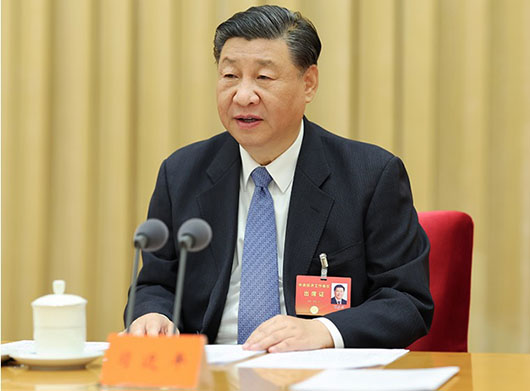Special to CosmicTribune.com, February 14, 2024
By Richard Fisher
The not-so-secret “secret” of the global “private” space sector is that successful private space companies usually achieve success due to the demand and subsidies provided by governments.
President Ronald Reagan promoted the ambition that commercial space operators would someday vastly eclipse government space operations and that remains the ambition of the future self-generating “Space Economy” expected to eventually exceed the value of the Earth economy.
But as the Space Economy remains a distant ambition, governments control the rules and regulations, generate the demand, or programs, and provide the budgets that pay for services that in turn allow private space companies to take risks to develop new technology.

Elon Musk’s SpaceX, currently the world’s most successful private space company, clearly took enormous risks in developing its Falcon and Starship families of reusable space launch vehicles (SLVs).
At the same time, United States government contracts for his space launch services became key to the ability to accumulate profits to invest in better and new SLV technologies like the SpaceX Starship, that in turn will earn U.S. National Aeronautics and Space Administration (NASA) contracts as the new Human Landing System (HLS) to put the U.S. back on the Moon.
NASA’s Artemis program to put people back on the Moon depends on the private sector to develop new Moon landing vehicles.
NASA is also spending $2.9 billion to support private companies to build unmanned Moon probes, to include $118 million to pay for payloads on the Intuitive Machines unmanned Moon lander scheduled for launch on Feb. 14.
China’s government is also deliberately building a “private” space sector of scores of companies not directly owned by the Chinese government, such as its leading space conglomerate the China Aerospace Science and Technology Corporation (CASC).
But while the leadership of the Chinese Communist Party (CCP) and its People’s Liberation Army (PLA) that controls China’s space program, clearly seek to spread the risk of developing new space technology to a large number of companies, it is also clear that China wants to control these companies and make sure they all contribute to goals created by the CCP and PLA.
On Dec. 12, 2023, China’s State Council reported that Xi Jinping, in his capacity as leader of the CCP and the Central Military Commission of the PLA, led the annual Central Economic Work Conference, in which he called for “nurturing strategic emerging industries including…commercial space industry…”
Full Text . . . . Current Edition . . . . Subscription Information

You must be logged in to post a comment Login